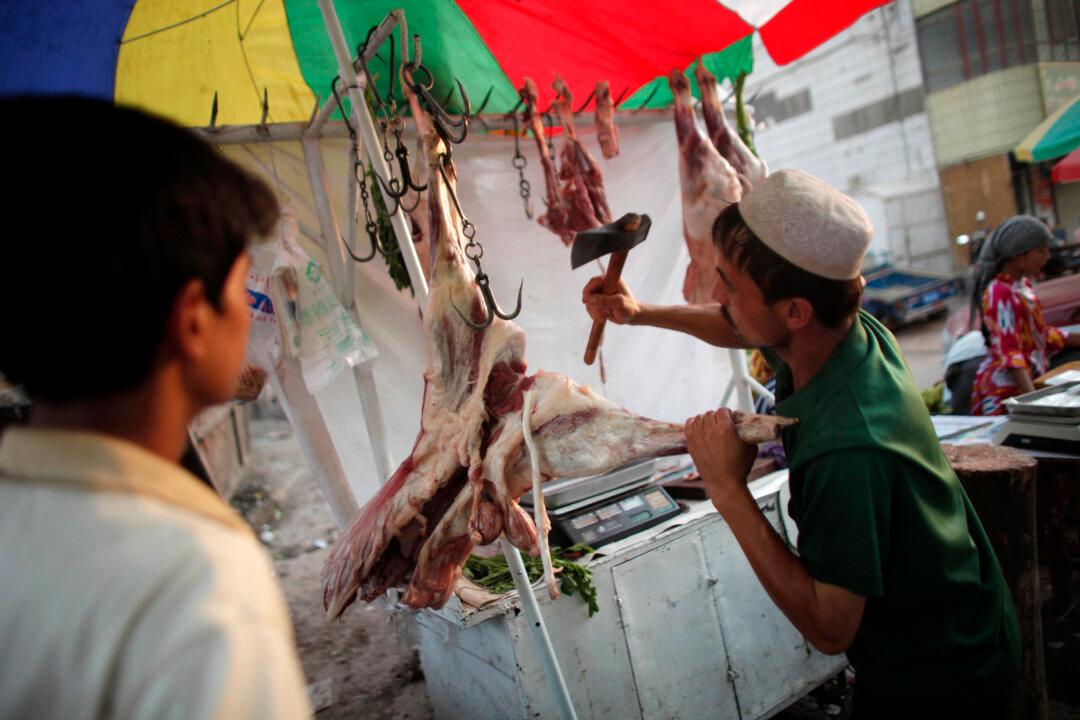SHANGHAI—The Chinese regime has launched a campaign against halal products amid an escalating crackdown on Muslim minority groups, particularly the Uyghurs, in the Xinjiang region.
In a meeting on Oct. 8, the Communist Party leaders of Urumqi led cadres to swear an oath to “fight a decisive battle against ‘pan-halalization’,” according to a notice posed on the city’s official WeChat account.
Everyday halal products, like food and toothpaste, must be produced according to Islamic law.
The Chinese regime has used the excuse of potential Islamic threats, “extremism” and ethnic riots to crack down on the local population in Xinjiang.
The official Global Times said on Oct. 10 that the “demand that things be halal which cannot really be halal” was fueling hostility toward religion and allowing Islam to penetrate secular life.
As part of the anti-halal campaign, Ilshat Osman, Urumqi’s ethnically Uyghur head prosecutor, penned an essay entitled: “Friend, you do not need to find a halal restaurant specially for me.”
According to the WeChat post government employees should not have any diet problems and work canteens would be changed so that officials could try all kinds of cuisine.
The Urumqi Communist Party leaders also said they would require government officials and party members to firmly believe in Marxism-Leninism, and not religion, and to speak standard Mandarin Chinese in public.
Chinese citizens who want to practice their religion have been subject to increasing levels of surveillance as the government tries to bring religious worship under stricter state control.
According to The Associated Press, Xinjiang has been transformed into a vast security state, packed with police stations, street cameras, and security checkpoints at which electronic identity cards are scanned. Travel restrictions prevent free movement or even the opportunity to visit friends and relatives in nearby towns.
The Communist Party in August issued a revised set of regulations governing its members’ behavior, threatening punishments or expulsion for anyone who clung to religious beliefs.





